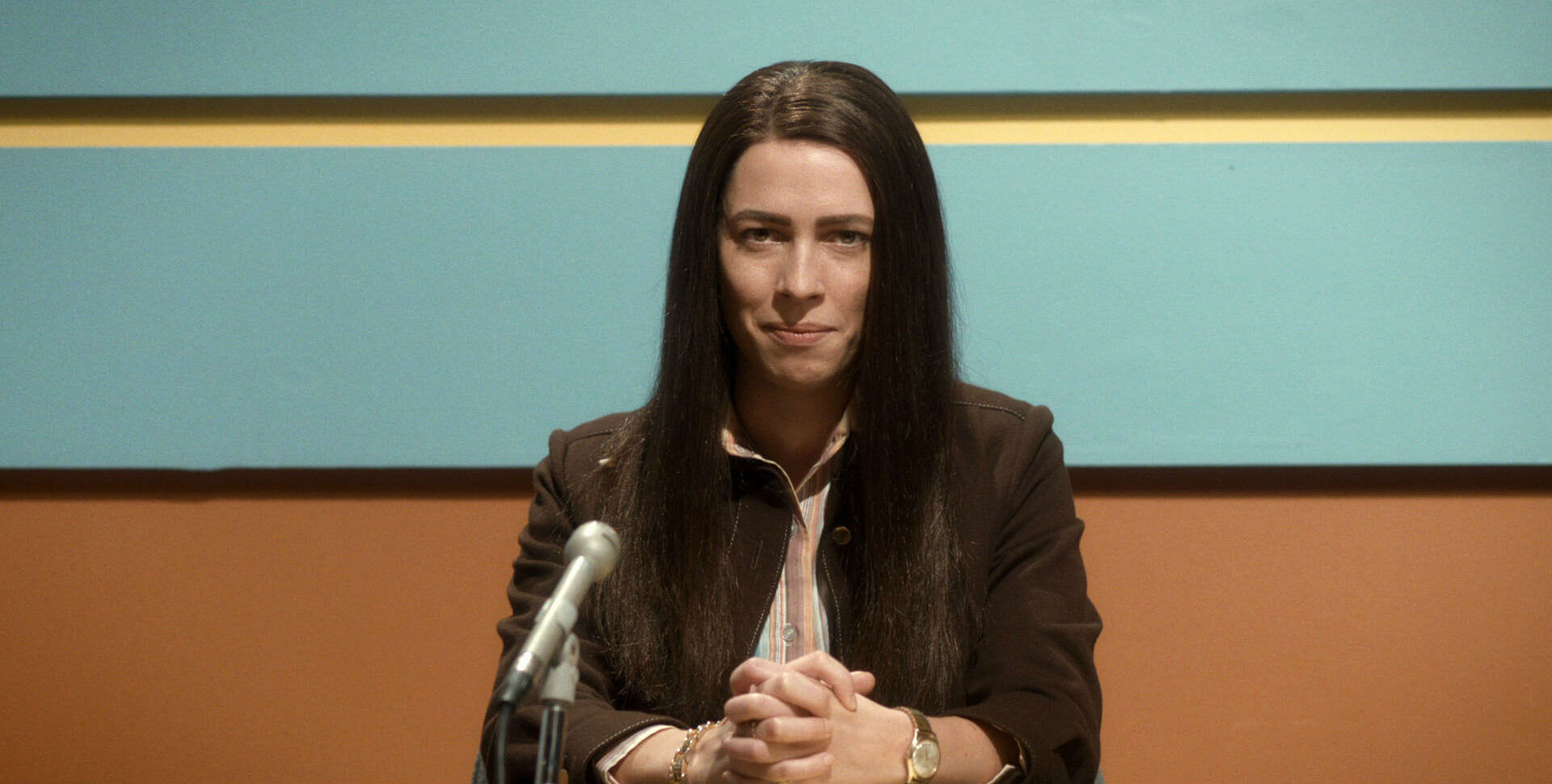Christine [2016] bears the unfortunate distinction of premiering more or less alongside a vastly superior take on its subject’s life and very public death. Whereas Robert Greene’s Kate Plays Christine asked vital questions about our collective thirst for violent content and experimented with its documentary form, Antonio Campos’ more conventional look at the days before Christine Chubbuck’s televised suicide plods along like any other biopic.
Blood and Guts: About midway through Campos’ misguided character sketch, TV station manager Mike Nelson (Tracy Letts) actually says, “If it bleeds, it leads.” Our doomed protagonist, Saratoga reporter Christine Chubbuck (Rebecca Hall) strikes back with what we’ll soon learn is characteristic skepticism, “[That’s] a catchphrase you picked up at a conference in Cleveland last month.” The exchange not only evidences the shortcomings of Craig Silowich’s script (another chestnut: “You know what your problem is, Chubbuck? You’re a feminist.”), but also reflects the nature of the film itself. It’s an earnest, but ultimately futile, attempt to undercut prevailing cliches. In spite of its uniquely provocative subject matter and an excellent lead performance, Campos’ film cannot avoid the expected genre beats, or, more crucially, distinguish itself as anything but well-appointed exploitation.
In Living Color: As Christine trudges toward its inevitably bloody climax, a sequence handled at once luridly and non-committedly, the viewer comes to understand that all this film and Greene’s really have in common are the compassionate performances of their respective leads. Kate Lyn Sheil’s comprehensive research into the real Christine Chubbuck constitutes the bulk of Kate Plays Christine. Hall’s performance shows, if not the same attention to historical detail, at least a similar respect for the life of the woman behind the role. Sheil brings the superior film to a close with an assault on its very structure. Forced to reenact Chubbuck’s death, Sheil defies Greene, “You have to tell me why you want to see it.” Hall never seizes such an opportunity. More accurately, Campos’ outrageously blunt and condescending film never offers her much of one.
The Whole Operation: Perennially underappreciated, Hall does more than anyone else could with this uninspired material. Using her considerable height to supremely awkward effect, she communicates a lived-in sadness that Silowich’s script continually cheapens. Christine’s Chubbuck embodies every hack’s conception of the early-1970s square. Living in a girl’s bedroom, amongst posters for The Carpenters and Gordon Lightfoot, she rails against the freewheeling lifestyle of her pothead mother. Hall, however, proves intermittently capable of undercutting the film’s condescension. Obviously, she never addresses Campos or Silowich directly, never holds these reckless artists accountable, but she manages to strike some improbably human notes in her characterization. An early sequence sees her sing a passionate duet alongside her car radio. Moved by “Annie’s Song,” Hall’s Chubbuck nevertheless takes notice of a nearby driver and quickly stifles the performance. This small gesture, as easily missed as it is essential, subtly reveals what we see handled with screaming obviousness elsewhere. Silowich’s more flagrant attempts to diagnose Chubbuck look all the more reductive by comparison. Hall’s work, however sensitive and skillful, cannot undo a slight of a script, nor override the sense that nearly every other actor delivers their lines like a featured player in a cable sitcom. Kate Plays Christine ends with the assertion that dramatizing Christine Chubbuck’s life would be a foolhardy, exploitative, and meaningless gesture; Christine suggests that Robert Greene and Kate Lyn Sheil were definitely onto something.
A career-best performance from Rebecca Hall is not nearly enough to salvage Christine.
Surface-level characterization, clunky dialogue, and an air of empty sensationalism contribute to a film
that looks an awful lot like the sort of reporting its subject continually derides.

Related: What's the story behind Christine?
Check out our interview with Christine's Director Antonio Campos
for behind the scenes information on the film's production.
Watch Christine on iTunes
